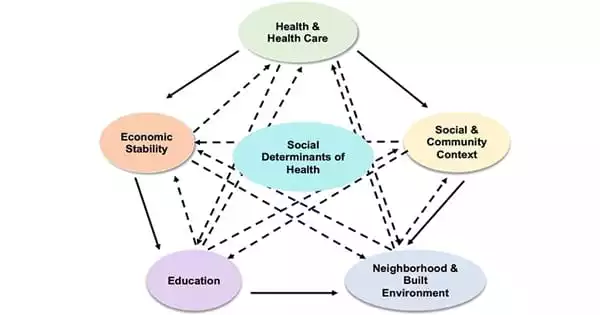Working parents have been under increasing pressure for a while now as daycare fees rise along with a shortage of available spaces. The broken condition of England’s early childhood education and care (ECEC) system is plainly demonstrated by two recent publications.
The availability and affordability of childcare slots are both falling across England, according to reports from the children’s charity Coram and the think tank Nesta. For parents and early childhood educators who are struggling to make ends meet while the cost of living keeps rising, this creates “poverty traps.”
We are always researching what constitutes decent work in various regions of the world and what legislative changes might increase the diversity and sustainability of the labor market. Since 2020, we have conducted numerous interviews with policymakers, early childhood educators, and working parents. All agree that more sustained investment would support working parents while also assisting in the creation of respectable jobs within the ECEC sector.
High costs and patchy coverage have created a childcare crisis and these problems are more acute in deprived areas. The average cost of a full-time place for pre-school children across the UK is £14,836, according to Coram’s report. This is more than 80% of the 2022 full-time annual minimum wage of £18,500.
Unsurprisingly, the UK often comes near the bottom of international league tables for childcare affordability. And within England, Manchester has some of the least affordable childcare compared to average earnings.
Evidence obtained by the BBC reveals that parents are essentially being priced out of full-time employment by this childcare affordability crisis, despite strong financial and societal incentives on unemployed and inactive employees to reenter the labor market.
The free 30 hours per week provision for three and four-year-old children (and some two-year-olds from low-income families) is welcome. But free hours are only available during term time (38 weeks per year) and parents in England (but not Scotland) must both be working at least 16 hours per week to qualify. Our focus groups with working mothers have shown that there is a demand for reasonably priced wraparound and holiday care in order to maintain employment and advance one’s career.
Investing in childcare
The fact that many providers are unable to pay their personnel enough to survive on only serves to exacerbate the unintended effects of this pricey business. Our ongoing research suggests that ECEC workers are often mothers themselves (also in need of affordable childcare), and many earn at or just above the adult minimum wage of £9.50 per hour (due to rise to £10.42 in April 2023) regardless of their experience and skills.
While the overall early years workforce is aging, new entrants to the sector may be paid at the “youth rates” of £9.18 (21- and 22-year-olds) or £6.83 (18- to 20-year-olds). This meant the average wage within the sector was £7.43 in 2020, well below the adult minimum wage at the time (£8.21).
Although it is obvious that workers do not enter the early years industry for the money, these pay are plainly much below what is required to exist in the face of an unprecedented cost of living problem.
Some ECEC providers have informed us that they are unable to compete for employees with other vital services like schools and the NHS, where starting pay, career advancement, and pensions are frequently better.
After the implementation of COVID-19, providers have also found it difficult to compete with supermarkets, many of which pay at least the real living wage and provide flexible, part-time work with lower physical and mental demands. Our research also shows that some prospective early childhood educators believe they would be better off financially if they continued to receive Universal Credit.
Due to all of this, providers are no longer operating at full capacity, thus reducing the number of spaces available to parents. This only makes it harder for early years providers to keep their heads above water.
But providers are unable to move towards paying staff the real living wage (currently £10.90 per hour outside of London) because the funding they receive from the government for three- and four-year-old Nursery Education Fund (NEF) places leaves many struggling to break even. This requires providers to cross-subsidize from other parts of the business or to charge additional ‘top-up’ fees for meals, nappies and activities.
The prices for NEF places across local authority areas often do not meet the costs of increasing wages, even though some local authorities have boosted funding and included living wage clauses in contracts for home care.
Better support for the industry
Research shows that the subsidized model of childcare in Quebec, Canada, has steadily increased the labor market participation of mothers, while also strengthening the professional status of early years educators. The need for a comparable program to expand subsidized childcare beyond the current three and four-year-old provision and enhance working conditions in the sector is developing in the UK.
Jobs in ECEC can be extremely fulfilling and beneficial to society, but improving the sector’s appeal as a place to work is essential if the UK is to effectively support working parents. This could aid women in particular by addressing the motherhood pay and career penalty as well as the gender pay gap.
While some additional support is expected to be announced in the Spring budget, the key role of childcare in tackling gender equality has also been set out in policy proposals by the Labor party.
The unequal burden of high costs and poor salaries is likely to remain unless ECEC is recognized as a fundamental public good in the UK, is adequately supported, and is tailored to parents’ needs.
Both financially strapped parents and low-paid workers would gain from a revaluation of ECEC positions since they share a need for the availability of high-quality and long-term childcare.
















